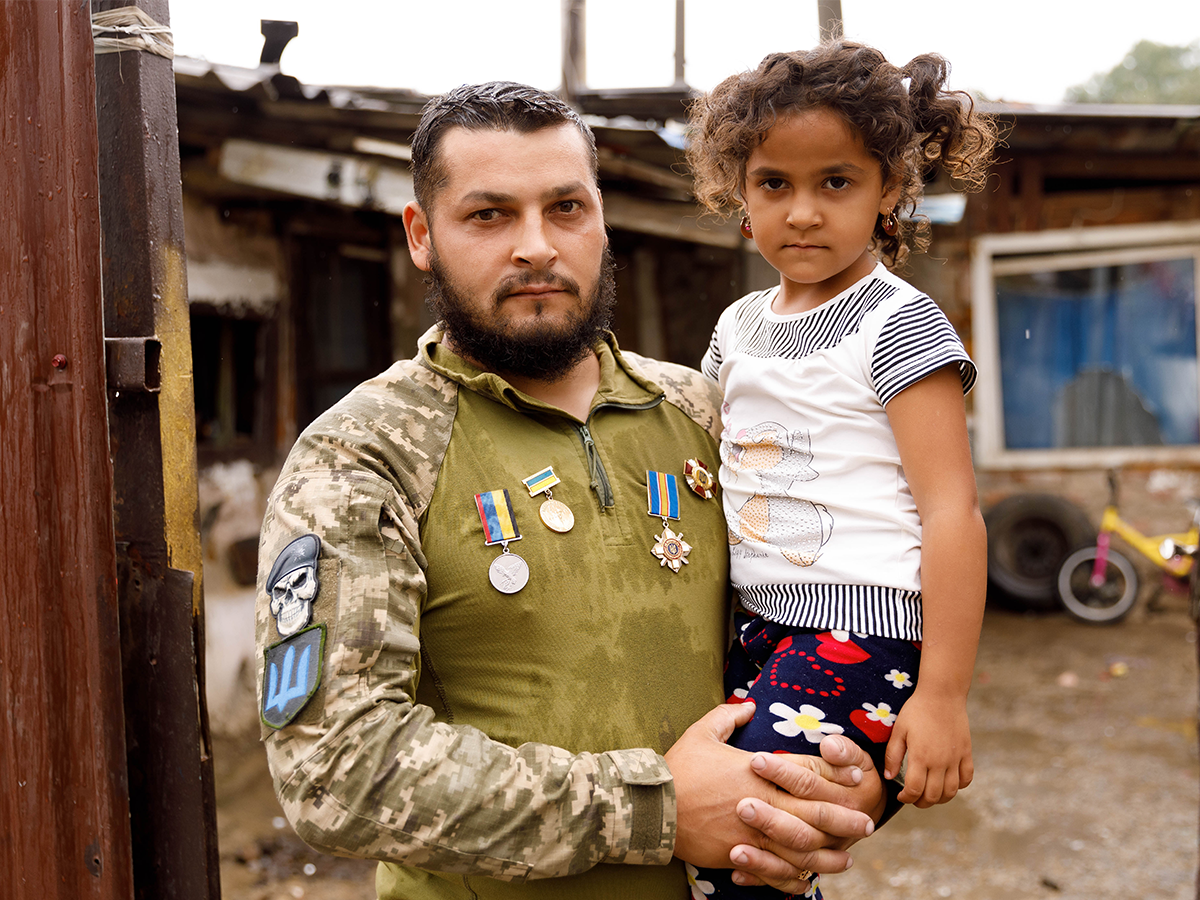Ukraine’s future won't only be determined by military and diplomatic developments, but also by the strength of its economy—and that depends on recognising the essential role of the Roma.
Earlier this month, the Munich Security Conference highlighted the urgent questions facing Europe and Ukraine’s allies. A US proposal seeking access to Ukraine’s rare earth minerals as repayment for military aid has drawn criticism from President Volodymyr Zelenskyy. Meanwhile, European leaders are debating new security guarantees and the possibility of a European army, all while peace negotiations appear to be advancing without direct European participation.
Yet the future of Ukraine will be determined not only by military strategies or diplomatic negotiations but also by its ability to ensure its economy is strong. As President Zelenskyy said last year during the presentation of the Ukraine’s Internal Resilience Plan, "A strong economy is the key to sustainable growth, national defence, and retaining human capital. Ukrainians must be able to fulfil their ambitions here in Ukraine." And for this to happen, Roma communities must be recognised as central to its future.
One of the biggest challenges Ukraine’s economy faces today is ensuring the workforce to sustain growth, innovation and productivity. Businesses across industries—from construction and manufacturing to services and healthcare—are struggling to find the skilled workers they need. At the same time, there are Roma communities with untapped potential—people eager to work, contribute and build a future. Many of them, however, face barriers to entering the workforce: a lack of education or training, limited access to professional networks and outdated perceptions about their work ethic or reliability. Young Roma are not fully participating in the labour market or in education. This is an economic mismatch Ukraine cannot afford to ignore.
More than a third of Roma in Ukraine are under the age of 15. This demographic reality underscores a broader truth: Ukraine’s ability to rebuild depends on ensuring that young Roma—its future workers, educators, healthcare providers—have access to education, vocational training and economic opportunities.
Even before the war, though, Roma communities in Ukraine faced systemic barriers to education and employment. Too often, children were excluded from learning due to a lack of basic resources like transportation, food and clothing. Now, as Ukraine receives substantial international aid and prepares for post-war reconstruction, these inequalities risk becoming further entrenched unless targeted measures are taken.
A priority should be to equip young Roma with the right skills for the jobs that Ukraine’s businesses need filled today and tomorrow. That means starting second chance education programmes, expanding apprenticeships, investing in vocational training, investing in community education centres and making it easier for employers to connect with emerging Roma talent. The good news is that there is targeted funding for this. Last year, EU partners pledged €700 million to retrain 180,000 Ukrainians within three years. However, these programs have limited reach to Roma, due to programming, eligibility requirements and inadequate targeted outreach. Therefore, it is necessary to streamline recruitment processes, reducing unnecessary bureaucracy, and ensuring that when someone is ready to work there are no artificial barriers keeping them from reskilling and contributing.
At the same time, an issue that too often goes unspoken must be addressed: stereotypes. Some employers hesitate to hire Roma because they have heard stories that do not reflect reality—narratives that suggest a lack of motivation or readiness. That was the case with Ilyana,* who after fleeing from Toretsk, tried getting a job in a shopping centre in Pavlohrad. “I filled out the questionnaire and applied and had a very pleasant conversation on the phone. However, when we met and the owner saw how I look, she immediately said the standard phrase—‘I will call you back’—and I never found a job.” The truth is, when given the right tools and the right opportunities, Roma workers are just as capable, just as hardworking and just as ambitious as anyone else.
The real risk is not in giving people a chance—it is in failing to tap into the full strength of Ukraine’s workforce potential. And the good news is that Roma heroes are already volunteering, fighting and changing perceptions.
According to our Fighting for a Fairer Future report, a quarter of surveyed Roma families have members serving in Ukraine’s military, with a third of them volunteering. Their experience shows a tremendous commitment to their homeland and is a basis for shifting perceptions about their community. The most recent report on Social Cohesion in Ukraine, shows that Roma continue to be one of the least accepted groups in Ukraine. However, while there are no demographic differences in social tolerance, the report shows significant regional differences, with Kherson and Mykolaiv showing the greatest tolerance. This suggests that social tolerance has increased in regions along the frontlines and those that have experienced de-occupation.
The Bureaucratic Wall Keeping Roma Out
Beyond education and employment, housing security and social services must be prioritised. Half of all Roma internally displaced persons (IDPs) in Ukraine are located in the Zakarpattia region, but only a quarter of them have successfully registered for official assistance, compared to nine out of ten IDPs elsewhere, according to our survey. Bureaucratic barriers continue to prevent Roma from accessing basic aid, including property compensation programmes for war-damaged homes. These gaps in assistance must be addressed in reconstruction planning to avoid exacerbating pre-war inequalities.
For too long, discussions about Roma in Ukraine have been framed as a matter of integration rather than recognition of their essential role in the country’s future. This must change. Ensuring that post-war recovery efforts prioritise Roma communities is not a concession—it is a vital step toward Ukraine’s resilience and success. Two-thirds of Roma we surveyed reported a loss of income due to the war, and one-third described their financial situation as a crisis. Additionally, two in ten Roma reported severe psychological distress requiring professional care. Addressing these urgent challenges should be a priority in the country’s long-term planning.
The Real Test of Ukraine’s Future
As European leaders gather to discuss the next steps for Ukraine, the focus should not only be on security guarantees and mineral deals. The real test will be whether Ukraine’s reconstruction is built on a foundation of equity and opportunity for all citizens. Investing in the future of Roma communities is not just an ethical obligation—it is a strategic imperative for the stability and prosperity of Ukraine in the years to come.

Neda Korunovska
Vice President for Analytics and Results
The latest

Serbia Must Amend Missing Persons Alert System to Protect Vulnerable Adults

Constitutional Review of the Šutar Law Confirms Serious Rule-of-Law Concerns

Europe’s Growth Depends on Roma Talent
Browse by category
Campaigns
Events
Facts
Press
Voices
For media inquiries:
[email protected]Sign up here so you don’t miss out on campaign updates, upcoming events and other news from the Roma Foundation for Europe and our network.
Sign up for our newsletter